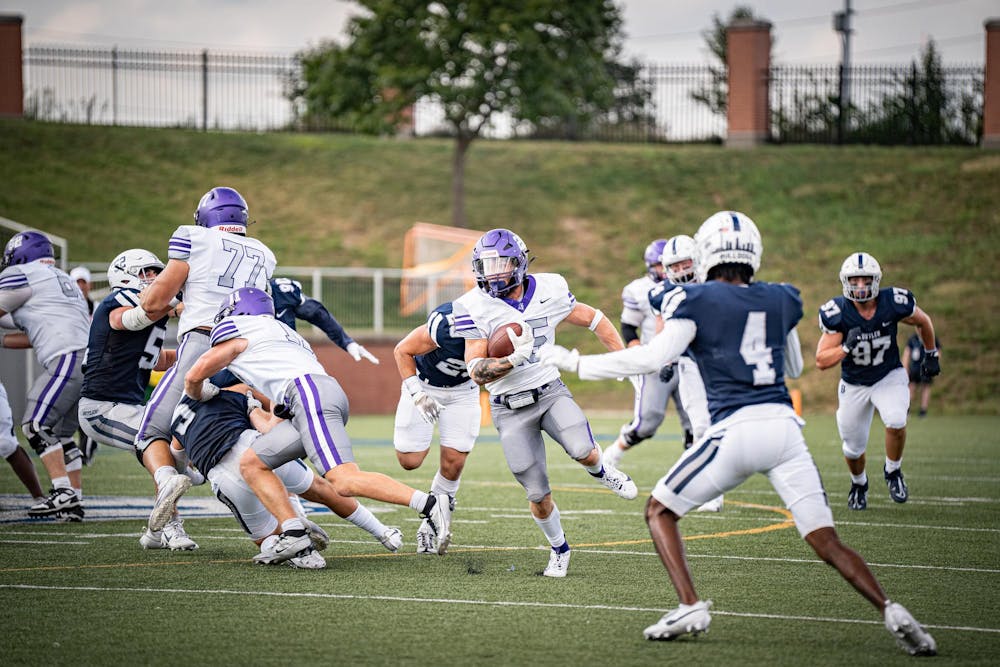Big name schools scheduling smaller and lesser known schools for the start of the football season is something we are all accustomed to. Schools like Michigan, Texas and Alabama will start off their season against schools like Eastern Carolina, Rice and Middle Tennessee State.
Often these games are blowouts by 40 or more points. Pac-12 powerhouse Oregon trounced FCS (Football Championship Subdivision) school Portland State in their season opener 81-7. Two weeks later, Portland State took down NAIA member North American 91-0. But why do these smaller schools agree to take on considerably larger schools year in and year out? Two reasons: money and experience.
Small schools typically get paid anywhere from $500,000 to over $1 million to come to a large school’s home field and open the season. Oregon paid Portland State $574,000 to play them.
You may think that this only happens at the NCAA Division I level, but this happens at Taylor University as well. Taylor University has been playing Butler University, a Division I FCS school off and on since 2009.
“They (Butler University) are a very well-coached and very talented team. I think they do a great job of challenging us and revealing areas where we need to improve,” Mingo said.
One area of improvement that has been clear has been the offense– specifically their turnovers. Last season, Taylor University had two turnovers against Butler and had a total of five turnovers in their first three games into the season.
This year has been a different story. With zero turnovers against Butler University, and only four turnovers through four games, Taylor has greatly improved their ball security.
“Offensively, we have done a better job of taking care of the ball and not turning it over. We need to consistently be an offense that takes care of the football,” Mingo said.
Reducing turnovers is not the only area of improvement for the Trojans. They have also stepped up their aggressiveness on the defensive side of the ball.
Senior linebacker Aven Jones already has 21 solo tackles through four games, which is only four less than he had through seven games last season. He also leads the team in total tackles with 45.
“The guys around me are what has made me better. We are all playing for each other and we are one big unit working together,” Jones said.
Another incentive for these smaller schools to play big schools is the experience factor. Many of these small schools are looking to see how their squad measures up with the bigger programs.
Coaches of these lower-division programs are looking for weaknesses that their team may have that the upper-division teams can expose. It also helps incoming players get used to the speed difference between college and high school football.
“We have a group of young guys that haven’t played a lot of college ball so playing these bigger schools helps acclimate them to the speed of the game,” Jones said.
Trinity International University dropped their football team this past season and left Taylor with an open week on their schedule, so Coach Mingo gave Dayton a call to see if they would like to the Trojans to their schedule.
This allowed Taylor to have a unique opportunity that many of NAIA schools do not get. They were able to schedule two FCS opponents this year, their yearly battle with Butler as well as a new addition – the Dayton University Flyers.
The next bout for the Trojans will be a home game against archrival Indiana Wesleyan University, currently ranked No. 4 in the NAIA. The game will be at 6 p.m. on Sept. 30th.




